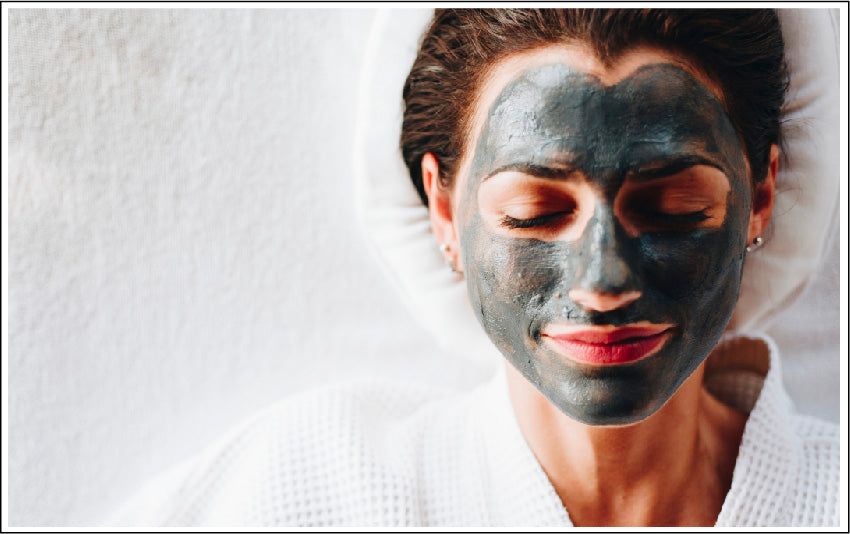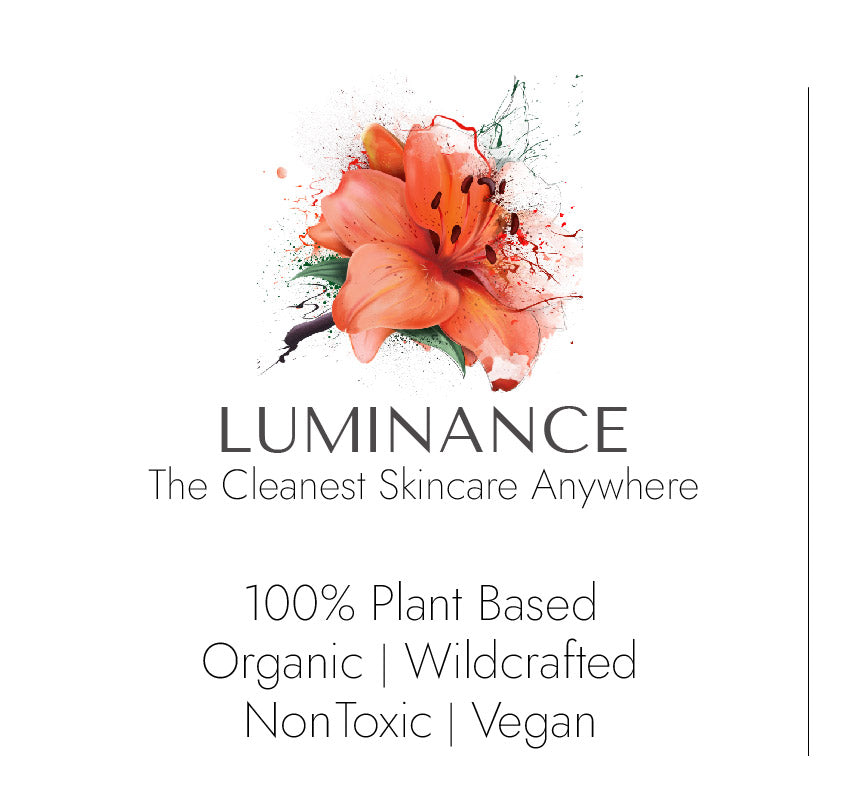Weekly Masks In Your Routine Can Be Extremely Beneficial To The Health And Appearance Of Your Skin.
Face masks come in many varieties, formulations, and textures. With many different options to choose from, it can be an overwhelming task to select the best mask for your skin type and area of concern. Here are our top tips for choosing the best facial mask for your skin:
"The mask traps the moisture or ingredient in the skin and creates a film that helps to either hydrate, moisturize, dry or exfoliate the skin depending on the ingredients used and its purpose. Therefore, face masks allow ingredients to penetrate better into your skin in a short amount of time."
Choosing a Mask
It’s important to remember, not all facial masks are created equally. Some masks are curated to balance oily skin and others might be for hydrating dry skin. The current season can have an impact on what type of mask you might need most, how your skin will react, and how often you should include that mask in your skincare routine.
For example, in the winter you may need to increase your usage of hydrating or exfoliating masks. In general, you probably want to consider having more than one mask on rotation, depending on what your skin is experiencing. It’s always best to listen to what your skin is telling you when it comes to skincare. Here are our basic guidelines for selecting a topical mask, by skin type:
- Oily/Blemish Prone Skin: a clarifying or purifying mask will help balance oiliness. Look for ingredients like clay, tea tree oil, and lavender.
- Dry Skin: a hydrating mask will help protect your skin’s barrier and provide you with extra hydration. Look for ingredients like rosewater, and non-comedogenic oils such as avocado, jojoba, and kukui.
- Sensitive: try to avoid acid or scrub exfoliating masks as they can irritate your sensitive skin, and so can over-exfoliating. We recommend a hydrating mask or an antioxidant-rich mask for a gentler option.
- Mature: exfoliating masks are a great option for aging skin because as we age our skin loses the ability to shed dead skin cells as efficiently as it did in our teens and 20s. Hydrating masks are also a great option to offer a rejuvenated complexion.
Masks come in many different forms, but not all are safe for the skin. Sheet masks are increasing in popularity, but they are highly concentrated formulas and are generally not designed to go deep into the pores. If the formulation is too concentrated and contains a lot of added chemicals (a lot of them do), they will irritate your skin. Peel-off, sticky masks do a satisfying job of ripping out dirt from your pores, but they damage your skin in the removal process by taking pieces of skin with the mask and damaging your skin’s elasticity.
Dry masks, while they have a longer shelf-life and don’t often contain added chemicals or harsh ingredients, need to be mixed with specified liquid ingredients that you need to have on hand making them less portable and more time-consuming to use. The common base in these dry masks is usually clay. Without nourishing oils to accompany these ingredients, dry masks can strip your skin of its natural oils if used too frequently and left on for too long.
Therefore, our top pick is a topical face mask, which requires no additional assembly, and is designed to go deeper into the pores offering better results without harming your skin.
How often Should I Mask, and How Often Is Too Often?
The frequency in which you use facial masks is completely individual to you, as everyone’s skin is different. Generally, it’s best to introduce a mask to your skincare routine gradually. Even better, patch test before committing to putting one all over your face. Start out using it once per week and if your skin responds well, increase usage to 2-3 times per week.
If you notice your skin starting to react negatively at any point, don’t be afraid to cut back rather than increase the frequency with which you use your face masks. Using a mask should not be a daily step in your skincare routine. Opting not to use masks will not sabotage the health of your skin. Think of them as an occasional lifeline you call on for help rather than something you depend on every day.
“The ingredients from a face mask are kept longer in contact with your skin because of the occlusion phenomenon of the mask on your skin.”
—
Proper Application and Removal Techniques
Mask Application: Your fingers are your best methods of application for a topical mask. Start with a clean face that has been pH balanced with a toner. Mind the recommended amount for application in the instructions and apply with
clean fingers
(otherwise, you are inviting bacteria to your face and the jar you extracted the mask from) in an even layer over your face and neck. Do not leave on for longer than the recommended period. This is key because leaving a mask on for too long can be harmful rather than helpful.
If you leave your mask on to the point where you feel tingling or tightness, you’ve left your mask on for far too long. This is troublesome, because at this point your skin has begun to pull and tear.
Damage control: the best thing you can do is to not let this happen again. Try using a timer or an alarm that alerts you when it’s time to remove your mask. If you’ve already left it on for too long, use a nourishing moisturizer to help calm the skin down and take a break from masking for a few days.
Mask Removal: We always recommend removing your masks in the shower, letting your shower water take care of the removal process, and using your fingers sparingly. This is the easiest way to rinse away your mask without making a mess of your bathroom.
If you’re removing your mask at your sink, make sure your hands are still clean and try to avoid using a fibrous washcloth (terry cloth or cotton, for example) to remove your mask, because the fibers from the cloth can get stuck in your pores and clog them, undoing all of your hard work. Most importantly: NEVER use hot water to remove a mask. Lukewarm water is best.
Ingredients to Avoid
While the purpose of a mask is to enhance your skin’s health, a lot of commercial options are full of preservatives and synthetics. This is to prolong the shelf life of the product, since masks are used more seldom than your everyday skincare items. None of these ingredients are helping your skin (they are hurting it), and our philosophy is that it’s better to have to repurchase a product with a shorter shelf life than to have something completely toxic that lasts only a little bit longer.
Remember, we are using a mask to enhance our skin, so our rule of thumb is if something is not easily recognized, it’s best to avoid it. Common mask ingredients to avoid include: phenoxyethanol, PEGs, perfumes or “parfum” and “fragrances,” petroleum, peroxides, mineral oils, alcohols, sulfates, and acids. These ingredients are skin irritants and should be avoided in any skincare product.
Don’t let the label fool you, either. Labels that read “natural” “vegan” and “cruelty-free” don’t always mean the product is safe. Look past the front label and focus instead on the ingredients panel to make sure it’s something safe to put on your skin.
Safer Mask Alternatives
We have four wonderful masks that are toxin and synthetic-free. If you’ve never tried our masks before, read on to learn more about a few of our most popular masks. Masks are great for your skin and masks are fun!
- Enzyme Exfoliating Mask: using fruit enzymes to exfoliate, which are a safer alternative than an acid peel or scrub, this mask naturally removes dead skin cells without harming your skin. Be sure to wash this mask off, or it will continue to exfoliate.

- Antioxidant Mask: a powerful mask with a delightful, fruity scent that eliminates free radicals from your skin that you encounter in everyday life. The Peptides will bring moisture rich collagen to the surface of your skin. This mask is gentle and suitable for all skin types.

- Green Clay Clarifying Mask: the perfect blend of clay and oils to offer a non-drying way to balance your skin and soak up excess oils, reduce inflammation, and remove impurities from the skin. This mask is great for acne-prone skin but gentle enough for all skin types. Tip: follow this mask up with our hydrating rosewater mask to reveal incredibly smooth skin.

- Rosewater Hydrating Mask: our most indulgent and versatile mask that can be used as a regular topical mask or left on overnight. If the intoxicating aroma of rosewater doesn’t win you over, the hydration benefits will. This mask is suitable for all skin types and is especially great for dry skin. A truly wonderful way to give your skin some added hydration when it needs it.

We hope this guide to face masks was helpful and inspires you to mask smartly and safely! As always, don’t hesitate to reach out to your friends at Luminance with any questions!


